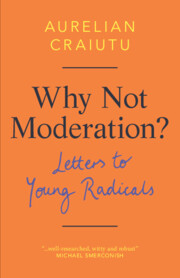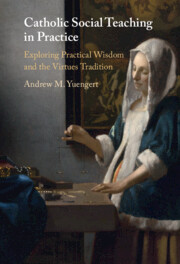Refine search
Actions for selected content:
45 results
A Philosophical Metabolism Problem: Undermining of Egoistic Reasons
-
- Journal:
- Utilitas , First View
- Published online by Cambridge University Press:
- 23 July 2025, pp. 1-16
-
- Article
-
- You have access
- Open access
- HTML
- Export citation
The impact of award uncertainty on settlement negotiations
-
- Journal:
- Experimental Economics / Volume 20 / Issue 2 / June 2017
- Published online by Cambridge University Press:
- 14 March 2025, pp. 333-367
-
- Article
- Export citation
Higher order risk attitudes and prevention under different timings of loss
-
- Journal:
- Experimental Economics / Volume 22 / Issue 1 / 15 March 2019
- Published online by Cambridge University Press:
- 14 March 2025, pp. 197-215
-
- Article
- Export citation
Measuring higher order ambiguity preferences
-
- Journal:
- Experimental Economics / Volume 21 / Issue 2 / June 2018
- Published online by Cambridge University Press:
- 14 March 2025, pp. 233-256
-
- Article
-
- You have access
- Open access
- HTML
- Export citation
Higher-order risk preferences in social settings
-
- Journal:
- Experimental Economics / Volume 21 / Issue 2 / June 2018
- Published online by Cambridge University Press:
- 14 March 2025, pp. 434-456
-
- Article
-
- You have access
- Open access
- HTML
- Export citation
Higher order risk attitudes: new model insights and heterogeneity of preferences
-
- Journal:
- Experimental Economics / Volume 26 / Issue 1 / March 2023
- Published online by Cambridge University Press:
- 14 March 2025, pp. 145-192
-
- Article
-
- You have access
- Open access
- HTML
- Export citation
The Ethics of Nuclear Energy: Technological Advancements and the Need for Revised Theological Guidance
-
- Journal:
- New Blackfriars / Volume 106 / Issue 3 / May 2025
- Published online by Cambridge University Press:
- 19 February 2025, pp. 187-202
- Print publication:
- May 2025
-
- Article
- Export citation
Chapter 3 - The Politics of Prudence
-
- Book:
- Schopenhauer's Politics
- Published online:
- 09 January 2025
- Print publication:
- 23 January 2025, pp 100-128
-
- Chapter
-
- You have access
- Open access
- HTML
- Export citation
Exploring Arbitrariness Objections to Time Biases
-
- Journal:
- Journal of the American Philosophical Association / Volume 10 / Issue 3 / September 2024
- Published online by Cambridge University Press:
- 07 March 2024, pp. 588-614
-
- Article
-
- You have access
- Open access
- HTML
- Export citation
4 - Fiduciary Obligations
- from Part II - Conduct Controls: Welfare and Pension Plans
-
- Book:
- ERISA Principles
- Published online:
- 15 February 2024
- Print publication:
- 22 February 2024, pp 116-159
-
- Chapter
- Export citation

Why Not Moderation?
- Letters to Young Radicals
-
- Published online:
- 12 October 2023
- Print publication:
- 12 October 2023
4 - Prudence
- from PART IV - THE ETHOS OF MODERATION
-
- Book:
- Why Not Moderation?
- Published online:
- 12 October 2023
- Print publication:
- 12 October 2023, pp 175-182
-
- Chapter
- Export citation
5 - Realism and Pragmatic Partisanship
- from PART IV - THE ETHOS OF MODERATION
-
- Book:
- Why Not Moderation?
- Published online:
- 12 October 2023
- Print publication:
- 12 October 2023, pp 183-190
-
- Chapter
- Export citation
4 - Learning, Democracy and the Realist Critique
- from Part I
-
- Book:
- On Global Learning
- Published online:
- 07 September 2023
- Print publication:
- 21 September 2023, pp 103-127
-
- Chapter
- Export citation
4 - Moral Principles
- from Part II - Moral Obligation
-
- Book:
- Of Moral Conduct
- Published online:
- 08 June 2023
- Print publication:
- 22 June 2023, pp 57-97
-
- Chapter
- Export citation

Catholic Social Teaching in Practice
- Exploring Practical Wisdom and the Virtues Tradition
-
- Published online:
- 03 June 2023
- Print publication:
- 15 June 2023
Chapter 13 - Prudence
- from Part II - Shakespeare’s Virtues
-
-
- Book:
- Shakespeare and Virtue
- Published online:
- 19 January 2023
- Print publication:
- 26 January 2023, pp 137-144
-
- Chapter
- Export citation
Chapter 11 - The Four Cardinal Virtues
- from Part II - Shakespeare’s Virtues
-
-
- Book:
- Shakespeare and Virtue
- Published online:
- 19 January 2023
- Print publication:
- 26 January 2023, pp 113-124
-
- Chapter
- Export citation
On the prudence of adopting a ‘Sin now; repent later’ policy
-
- Journal:
- Religious Studies / Volume 60 / Issue 1 / March 2024
- Published online by Cambridge University Press:
- 12 January 2023, pp. 17-37
- Print publication:
- March 2024
-
- Article
- Export citation
Chapter 1 - Necessity and Counter-Reformation Reason of State
-
- Book:
- The Power of Necessity
- Published online:
- 22 December 2022
- Print publication:
- 05 January 2023, pp 30-78
-
- Chapter
- Export citation
